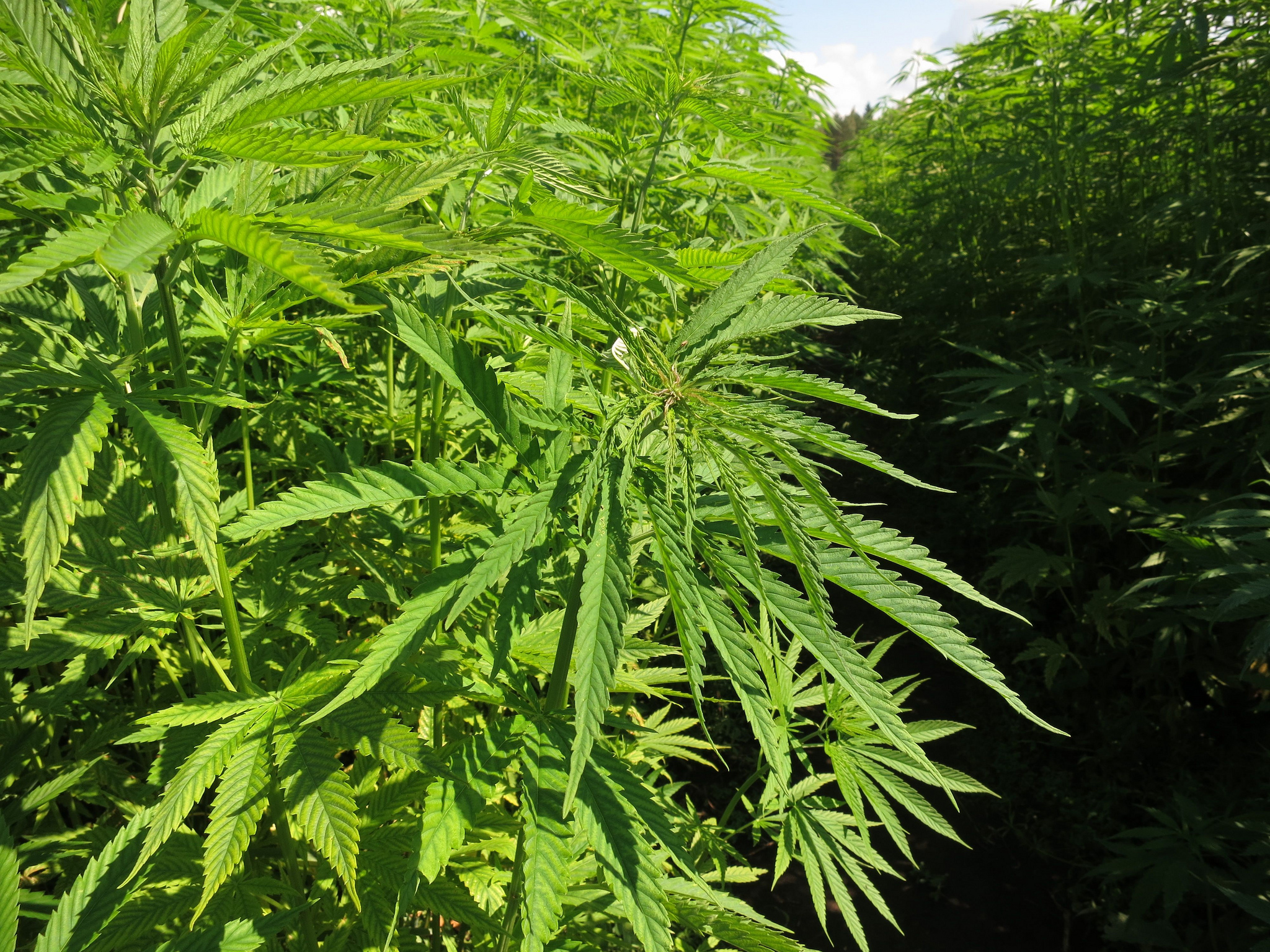Amid the growing popularity of marijuana law reform, it is sometimes easy to forget about the other important cannabis revolution: the revitalization of a forgotten hemp industry.
Recent pioneers of industrial hemp in the U.S. were granted licenses to grow pilot hemp crops in Kentucky, Colorado, and Vermont this year following the passage of the Farm Bill, which loosened federal restrictions on growing the non-psychoactive plant. There are twelve other states who have also loosened restrictions on hemp production, but did not issue licenses for experimental hemp crops this year.
In Kentucky, where American industrial hemp holds its most historical significance, hemp plantings statewide covered 15 acres of farmland this summer. In Colorado, where interest was also running high, there were 56 registrations for commercial hemp production and 76 more for research purposes. In Vermont, there were 12 registrations to grow hemp, — how many farms actually carried out their pilot hemp programs, however, is unknown by officials.
In Kentucky and Colorado, however, industrial hemp is coming along quite nicely.
“It seems to be fairly easy to grow,” said Bruce Pratt, professor of agriculture at Eastern Kentucky University. “The plants got established so quickly that they shaded out the weeds.”
Adam Watson is the Kentucky Agriculture Department’s hemp program director. By his description, the program carries a lot of potential:
“We’ve got an excellent climate for it, excellent soils for it. It’s a good fit for Kentucky producers. The ultimate question is going to come down to economics. Is there a market and can Kentucky capture that?”
Meanwhile, one ganjapreneur in Colorado is looking capitalize on her hemp field before its even finished growing. Veronica Carpio, who owns Colorado Hemp Coffee, has been offering periodic tours this summer of her outdoor and flowering hemp field. Her crop proved its natural resilience to Colorado’s high and dry climate this year, persevering heartily through both summer heat and springtime hail storms.
The biggest difficulties posed to the industrial hemp industry so far have been legal issues: namely, the Drug Enforcement Administration has continued attempting to block the importation of hemp seeds, despite their legality under the new Farm Bill. In one event, the DEA was sued by the Kentucky Agriculture Department, who requested that the federal agency return the state’s impounded hemp seeds in time for the favorable planting season. The seeds were eventually returned, but there remains a distinct dichotomy of ideals between the DEA and industrial hemp.
Commercial hemp is popular for offering eco-friendly alternatives for plastics and papers. Additionally, the revitalization of the hemp industry could help reduce deforestation, offer environmentally-conscious clothing alternatives (cotton is a water-guzzling crop), and stimulate the clean energy market via hemp biodiesel and ethanol fuel.
In 2013, a report by the Congressional Research Service said that hemp imports to the U.S. in 2011 cost $11.5 million — a paltry sum compared to other imported crops. Nonetheless, if the infrastructure for manufacturing and processing the plant is realized sooner rather than later, the U.S. stands to benefit immensely from this forgotten industry’s revival.
Sources:
Photo Credit: Miikka
Get daily cannabis business news updates. Subscribe
End


